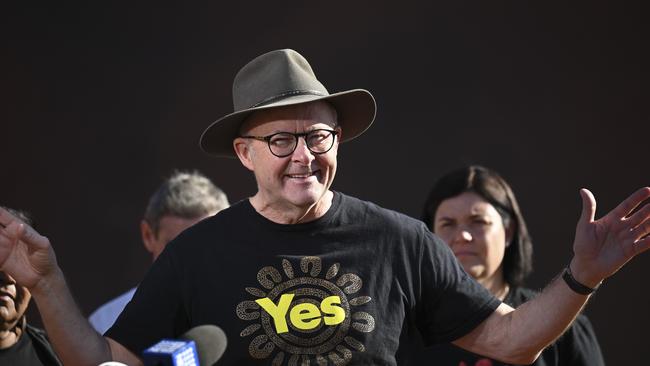
When politics shifted from a calling to a vocation, it professionalised, so that entering parliament became little different to entering the workforce.
That’s the benign loss of conviction we see domestically.
Overseas the rise and rise of populism is manifesting in far more scary ways. Perhaps we should be grateful.
Finding ways to secure three more years in office rather than putting policy passion first is now the key performance indicator Australian mainstream politicians judge themselves by. Which is why I’m not entirely critical of Anthony Albanese’s decision to seek a voice to parliament via constitutional reform.
Sure, the campaign was poorly crafted and badly argued, and the need to enshrine such change was questionable in the first place. But at least he was prepared to have a crack, in a policy area he believes in, in a political climate in which change is becoming harder to achieve.
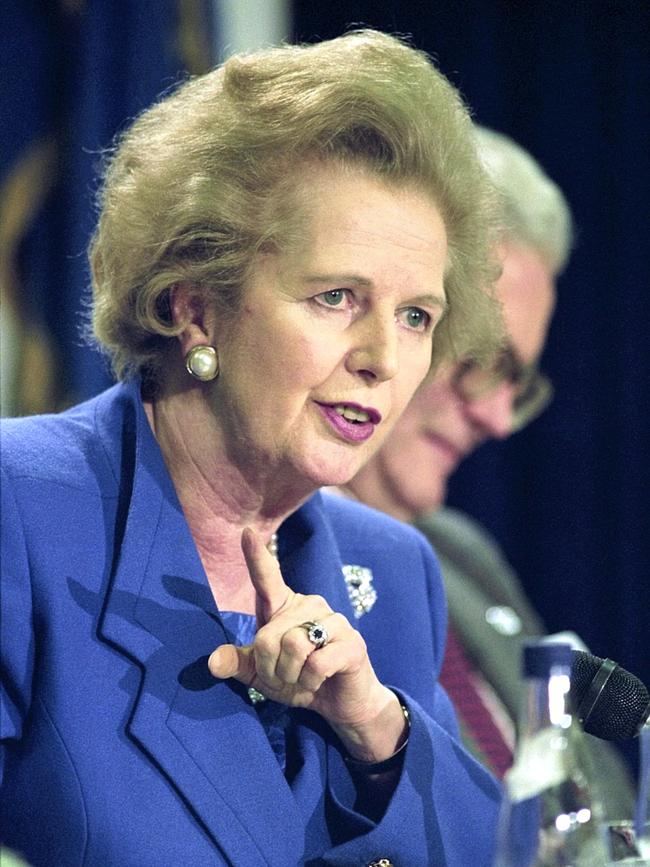
Unfortunately, the lesson learnt in failure is that political reward for effort is questionable, meaning further passion in policy is unlikely. Subsequently, pursuing constitutional reform to become a republic has been ruled out, even though becoming a republic is part of Labor’s policy platform. Even though the Prime Minister appointed an Assistant Minister for the Republic.
What republic? What advocacy for a republic? What agenda or timeline to one day become a republic? As embarrassing as this executive position now is, it will be even more embarrassing if it’s not junked at the next reshuffle.
When populism always trumps ideological or policy convictions the mantra from political leaders becomes “I am your leader, let me follow you”, rather than displays of leadership enacting unpopular but necessary reforms. Political scientists have studied representation and leadership theory for decades. The form of leadership we increasingly are seeing today fits within the delegate model: elected politicians simply reflecting the will of their community rather than seeking to shape it.
Which to a certain extent is fine for local MPs championing their constituencies; parish-pump politicians looking to secure local funding for roads and community halls or outcomes for individual voters who seek their assistance.
But much more is needed when it comes to executive government. The trustee model of representation essentially calls on political leaders to do what they believe is in the best interests of voters, even if it’s not always the popular course of action.
Eighteenth century conservative philosopher Edmund Burke championed such leadership. It resulted in a very short political career when he announced such intentions shortly after election to the British House of Commons. He was voted out at the next election.
While there is rarely virtue in putting principles ahead of pragmatism all the time, it’s important for politicians to retain some policy integrity along the way.
Political leaders, having been briefed by their bureaucracy on the various needs of the nation, should determine that major reforms are necessary and worth the political risk, even if voters aren’t necessarily equipped to automatically agree. Especially if the recommendations from the bureaucracy fit within their party’s ideological platform and their own values.
It is the job of politicians to win the argument championing necessary reforms. That skill is waning. To be sure, ideological reforms have long been championed in this way, such as when British prime minister Margaret Thatcher pushed her economic agenda in the 1980s, proclaiming: “Yes, the medicine is harsh, but the patient requires it in order to live.” Her concern was Britain’s declining economy and international standing. Thatcher’s turn of phrase was reserved for her cabinet because in politics such frank proclamations rarely are well received.
Modern politicking and “gotcha” journalism work against the ability for politicians to make unpopular decisions. The contest of ideas that ideological differences generate naturally adds to the difficulty of enacting policies. But it has become worse than that. Pragmatism now dictates how oppositions calibrate what they choose to support and oppose more so than ideological differences do.
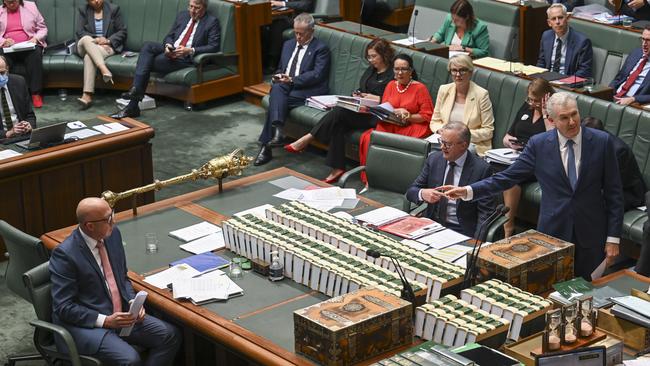
You can’t blame politicians for opposing what their convictions disagree with, but what about when opposition is dictated by nothing more than political advantage?
Plenty within the commentariat are quick to level this accusation at Peter Dutton, for example, because of his opposition to the voice. I’m not sure that’s a fair assessment; his convictions led him to that position when opposing the voice was decidedly unpopular, as those same commentators were quick to report. But there are other examples where the Coalition is led by populism in opposition rather than ideology. This transformation has become so entrenched that convictions seem to entail little more than kowtowing to the mob. They have become intertwined with populism.
The catch-22 for anyone who supports heady reforms (economic or social) as we count down to the next election in the coming 12 months is that the government doesn’t have policy courage, burnt by the voice campaign.
Meanwhile, the opposition is unlikely to support necessary but unpopular reforms because it sees political advantage in wedging Labor, even if the government finds a policy backbone.
Gone are the days of Paul Keating and Bob Hawke doing what’s right but unpopular. Also gone are the days when the Coalition in opposition puts the national interest above political advantage, as John Howard did in the 1980s, backing many of Keating’s micro-economic ideas against the urgings of Liberal Party strategists.
Thirty years on, everyone knows the Australian federation is broken structurally and in need of reform, but no one in a position of political power is prepared to risk doing something about it. This isn’t an ideological debate, yet it still isn’t on the political agenda.
The same goes for the need to institute wholesale tax reforms. Instead, what we get are piecemeal changes at best, such as the stages one, two and three income tax cuts, unconnected from adjustments to wealth, consumption and rent tax reforms.
Who in mainstream politics will risk their career by bucking the trend – to lead, rather than follow?
Peter van Onselen is a professor of politics and public policy at the University of Western Australia and Griffith University.



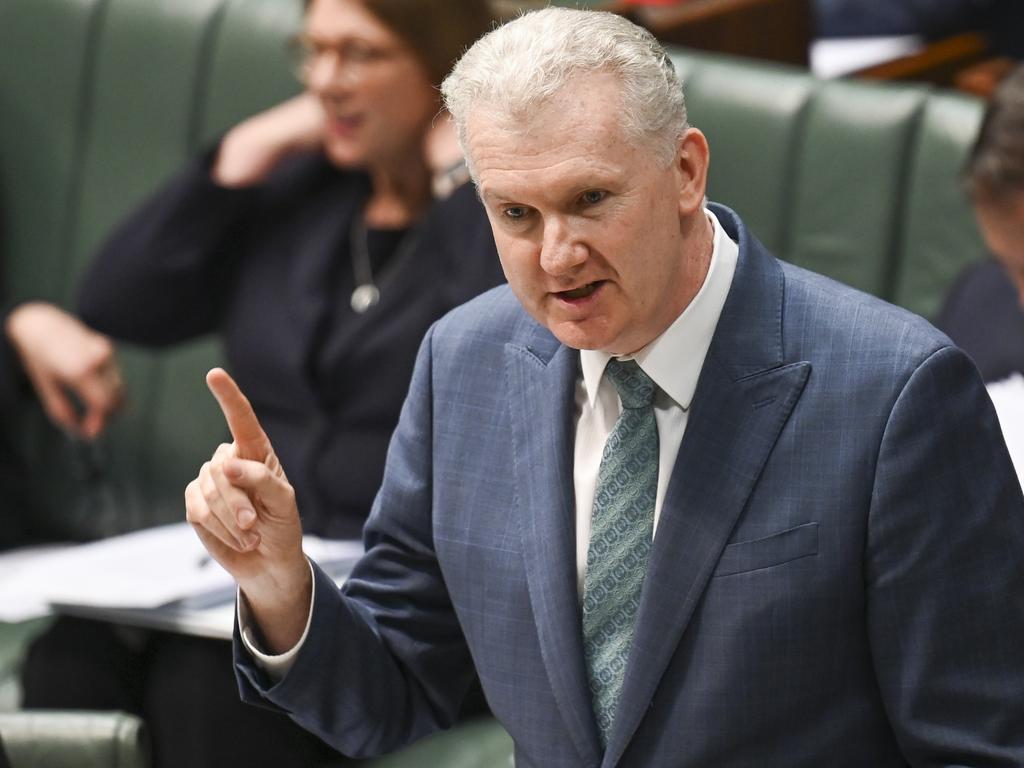

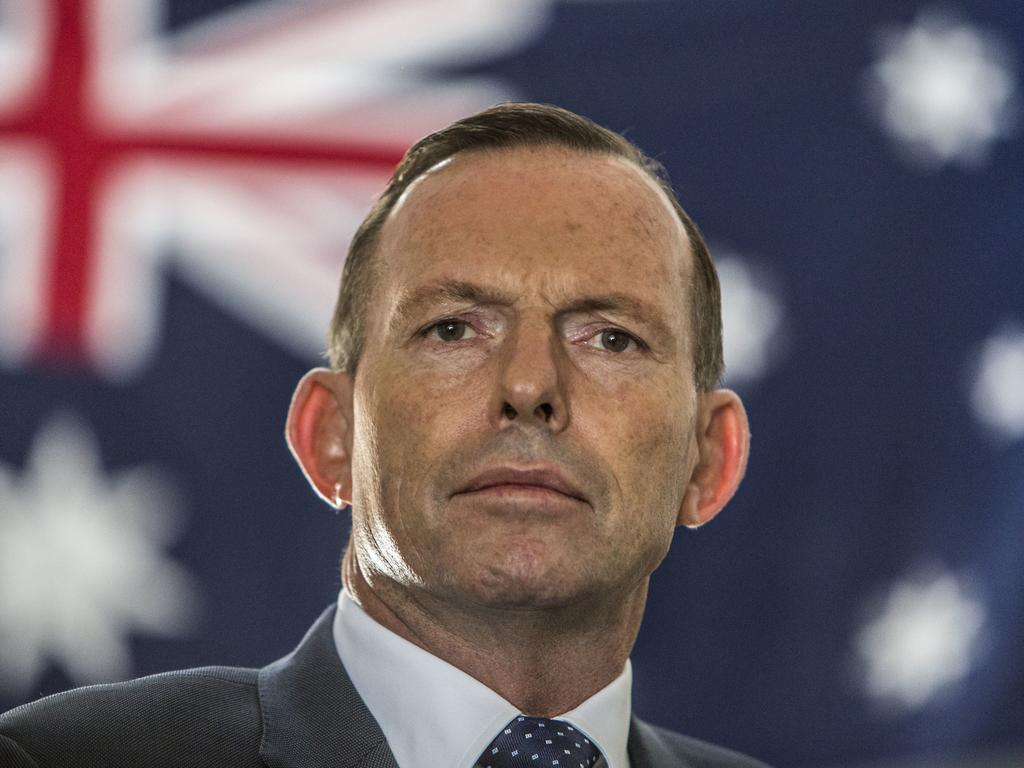


We are living through an age of extreme populism, meaning the mainstream political class rarely has the courage of its convictions. If indeed there still are convictions among modern leaders. The recipe for political success these days is dictated by winning, little more.